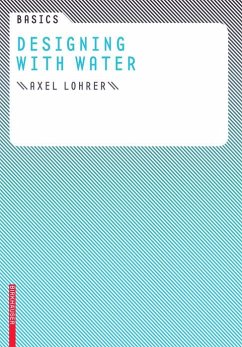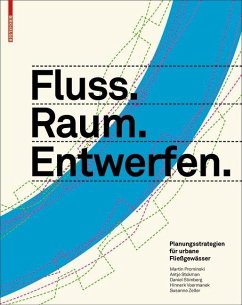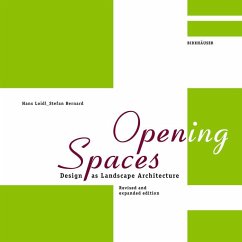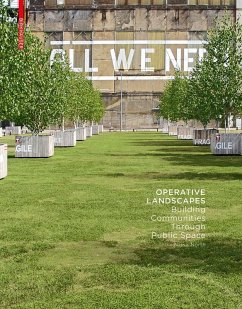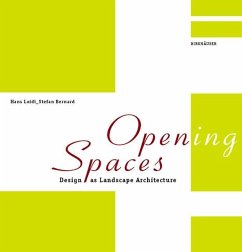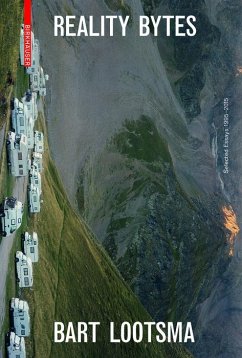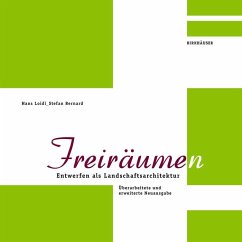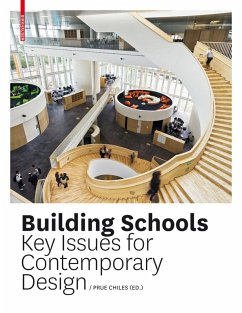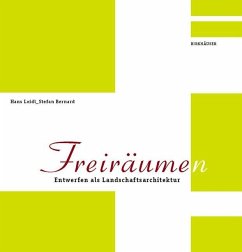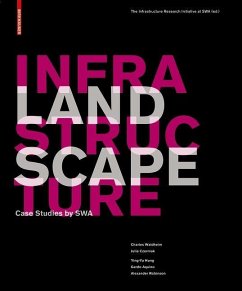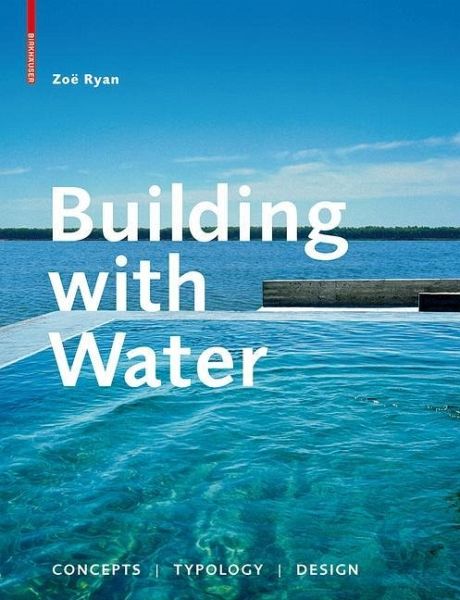
Building with Water (eBook, PDF)
Concepts Typology Design

PAYBACK Punkte
12 °P sammeln!
Water has been an important topic in architecture and urban planning for years. The revitalization of the waterfront has been a prevalent trend in cities around the world. On the other hand, architecture also had to respond to the threat of floods.The theme of Building with Water is the use of water in architecture. It presents buildings that explicitly refer to water in their design and form. It establishes a typology of building by the water: residential structures, recreation facilities, industry and infrastructure, buildings for culture and art. The various design parameters are explored i...
Water has been an important topic in architecture and urban planning for years. The revitalization of the waterfront has been a prevalent trend in cities around the world. On the other hand, architecture also had to respond to the threat of floods.
The theme of Building with Water is the use of water in architecture. It presents buildings that explicitly refer to water in their design and form. It establishes a typology of building by the water: residential structures, recreation facilities, industry and infrastructure, buildings for culture and art. The various design parameters are explored in four essays. Subsequently, twenty-two international projects are presented, organized according to their locations by a river, a lake or the sea. The authors' concern is not to show luxurious buildings in privileged locations but rather presenting projects that seriously grapple with the main criterion of the location-namely, water-in an ecologically sustainable way and respond to it with their design.
Wasser ist seit Jahren ein wichtiges Thema in Architektur und Städtebau. «Building with Water» thematisiert die Verarbeitung von Wasser im architektonischen Entwurf; es werden Bauten vorgestellt, die sich in ihrer Gestaltung und Form ausdrücklich auf Wasser beziehen. Eine Typologie des Bauens am Wasser wird erstellt: Wohnbauten, Verkehrs- und Industriebauten, Bauten für Kultur und Freizeit. Ebenso werden einleitend klassische Beispiele des Bauens am/im/auf dem Wasser gezeigt, wie etwa Château de Chenonceaux an der Loire, Falling Water in Pennsylvania von Frank Lloyd Wright oder das Salk Institute in La Jolla, Kalifornien, von Louis I. Kahn. Geordnet nach ihren Standorten am Fluss, See oder Meer, werden dann etwa 20 internationale Projekte vorgestellt. Es geht den Autoren nicht darum, luxuriöse Bauten an privilegierten Plätzen zu zeigen, sondern Projekte darzustellen, deren Entwurf sich ernsthaft und ökologisch verträglich mit dem Hauptkriterium des Standortes - nämlich Wasser - auseinandersetzt und sich gestalterisch darauf bezieht
The theme of Building with Water is the use of water in architecture. It presents buildings that explicitly refer to water in their design and form. It establishes a typology of building by the water: residential structures, recreation facilities, industry and infrastructure, buildings for culture and art. The various design parameters are explored in four essays. Subsequently, twenty-two international projects are presented, organized according to their locations by a river, a lake or the sea. The authors' concern is not to show luxurious buildings in privileged locations but rather presenting projects that seriously grapple with the main criterion of the location-namely, water-in an ecologically sustainable way and respond to it with their design.
Wasser ist seit Jahren ein wichtiges Thema in Architektur und Städtebau. «Building with Water» thematisiert die Verarbeitung von Wasser im architektonischen Entwurf; es werden Bauten vorgestellt, die sich in ihrer Gestaltung und Form ausdrücklich auf Wasser beziehen. Eine Typologie des Bauens am Wasser wird erstellt: Wohnbauten, Verkehrs- und Industriebauten, Bauten für Kultur und Freizeit. Ebenso werden einleitend klassische Beispiele des Bauens am/im/auf dem Wasser gezeigt, wie etwa Château de Chenonceaux an der Loire, Falling Water in Pennsylvania von Frank Lloyd Wright oder das Salk Institute in La Jolla, Kalifornien, von Louis I. Kahn. Geordnet nach ihren Standorten am Fluss, See oder Meer, werden dann etwa 20 internationale Projekte vorgestellt. Es geht den Autoren nicht darum, luxuriöse Bauten an privilegierten Plätzen zu zeigen, sondern Projekte darzustellen, deren Entwurf sich ernsthaft und ökologisch verträglich mit dem Hauptkriterium des Standortes - nämlich Wasser - auseinandersetzt und sich gestalterisch darauf bezieht
Dieser Download kann aus rechtlichen Gründen nur mit Rechnungsadresse in A, B, BG, CY, CZ, D, DK, EW, E, FIN, F, GR, HR, H, IRL, I, LT, L, LR, M, NL, PL, P, R, S, SLO, SK ausgeliefert werden.




